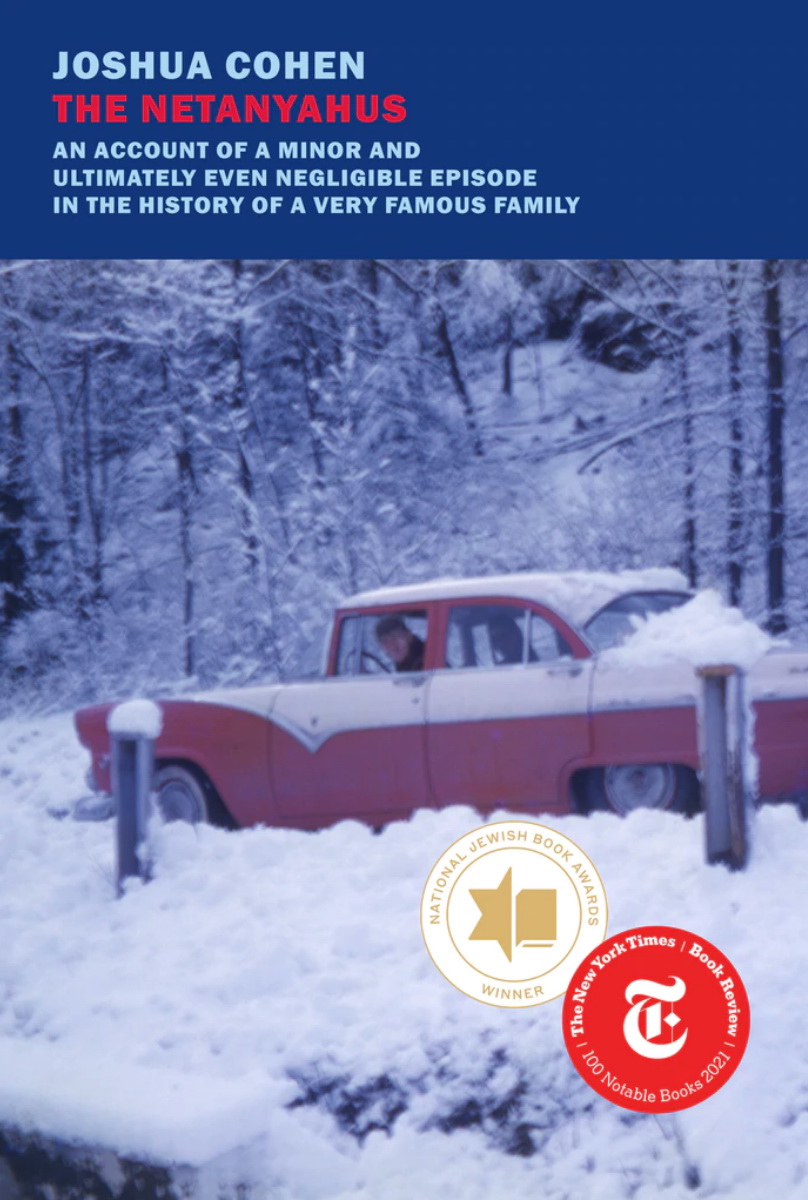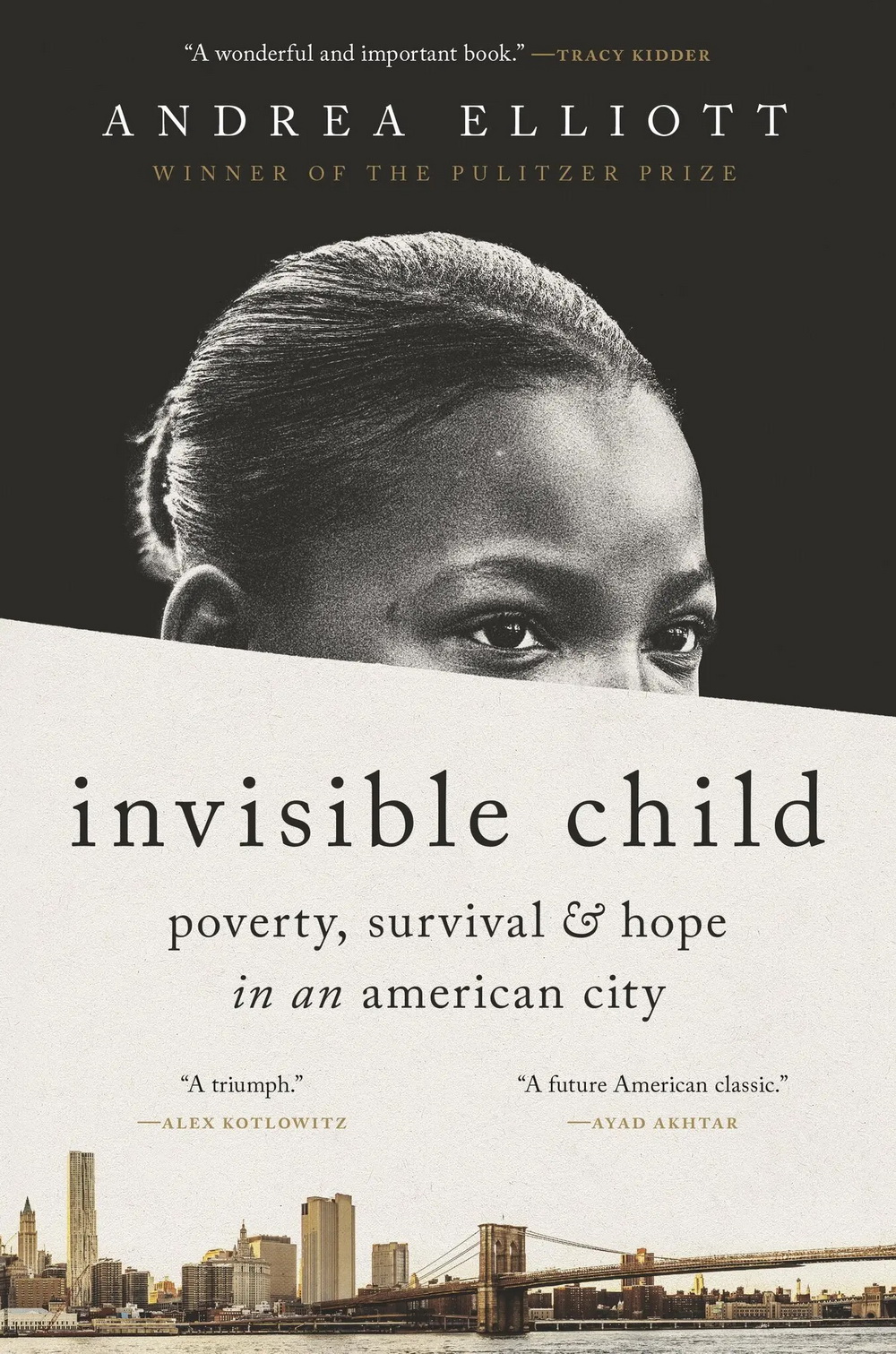
On the afternoon of May 9, local time, the 106th Pulitzer Prize announced the 2022 winners through an online live broadcast.
In the literary arts category, author Joshua Cohen won best novel for "The Netanyahus." "Invisible Child: Poverty, Survival and Hope in an American City," by New York Times reporter Andrea Elliott, won nonfiction prize.
Below is the full list of winners and presentations.
fiction
Winner: "The Netanyahus" by Joshua Cohen
In Cohen's book, scholar Benion Netanyahu, the father of Israeli Prime Minister Netanyahu, came to a fictional New York university in the late 1950s to interview for a job. The book's story is narrated by Ruben Blum, a faculty member who was asked to examine Netanyahu's suitability for the job. The novel explores themes of Jewish identity and diaspora, where Netanyahu's fatalistic views on Jewish history collide with those of the assimilated American Jewish professor Bloom. According to the jury, it's a "spicy, fluent historical novel about the ambiguity of the Jewish-American experience." The novel also won the 2021 National Jewish Book Award. The New York Times Book Review called the book “a school-age novel for generations, an uncompromising scholarly lecture, a thoughtful meditation on Jewish identity, an exhaustive meditation on Jewish American identity, Debate, a history lesson. It's an annoying, frustrating, pretentious work, but also a fascinating, enjoyable, hilarious, exciting work, the most I've ever read Good, most fitting novel."
History
Winner: Covered With Night: A Story of Murder and Indigenous Justice in Early America by Nicole Eustace
The book, also a finalist for the National Book Award, shows the lasting consequences of the 1722 murder of a Native hunter in Pennsylvania by two white businessmen. Eustace, a professor at NYU, explores how the immediate aftermath of the case has sparked a heated debate about justice and pitted Indigenous views and their concerns about reconciliation and forgiveness with those of white colonists By contrast, the latter tend to tend to retaliate. Ultimately, this event and subsequent cross-cultural negotiations between Aboriginal communities and white colonists paved the way for a treaty that is still recognized today.
Cuba: An American History by Ada Ferrer
This comprehensive account of Cuba also won a prize in the history category. It spans 500 years -- from before Christopher Columbus arrived to after Fidel Castro's death -- and details its history of occupation, revolution, and more. The book, Ferrer writes, is not just a history of Cuba, but also of Cuba’s relationship with the United States, one that has been at times close, at times heated, and always unbalanced. Ferrer has spent decades studying Cuba and draws on his own family's history to allow readers to "see the refraction of their own country through other people's eyes."
Biography
Winner: "Chasing Me to My Grave: An Artist's Memoir of the Jim Crow South," by Winfred Lumbert (Winfred Rembert), Erin I. Kelly
Artist Winfred Lumbert didn't start painting seriously until he was in his 50s. In his memoir, Rembert fuses his life story with his artwork — vividly colored paintings sculpted into leather — about his time in the deep South in the Jim Crow era life scene. Lambert described how he survived a near lynching in Georgia in the 1960s when he was chased by a white mob after a civil rights demonstration turned chaotic. He was later jailed for stealing a car and spent seven years behind bars, forced to work in shackles. Rembert died in the spring of 2021, not long before the memoir, which he published in collaboration with Erin I. Kelly, a professor of philosophy at Tufts University. In the introduction, he described how he'd wanted to tell his life story for decades, but thought he didn't have an audience: "I worry about whether people will believe me or care about me."
Poetry
Winner: "Frank: Sonnets" by Diane Seuss
This is her fifth collection of poetry, Seuss said, a memoir of sonnets about death, birth, loss and addiction. "There is no death in poetry," begins a poem. "There is no choking sound in poetry, no smell of blood. I can describe the sound, the smell, but the description is actually a hiding place. There is no nobility in description. Is there nobility in poetry? Let's hope there isn't. Nobility is Another place to hide." The book also won a National Book Critics Association Award and a PEN America Award.
general non-fiction
Winner: Invisible Child: Poverty, Survival and Hope in an American City, by Andrea Elliott
In Invisible Child, Elliott expands on a series she wrote for The New York Times in 2013 about homeless New York schoolgirl Dasani and her family . The book is an intimate account of the family, as well as a poignant account of poverty and drug addiction, and the city's and this country's repeated failures to address them. Speaking on a podcast for The New York Times Book Review, Elliott said that Dasani was the main focus of the book in part because "she was someone who, at a very young age, could A touching and profound way of expressing her experience. A rare trait even among adults." Matthew Desmond commented on the book: "This fearless, tenacious reporting The result is a rare and powerful work whose story will stay with you long after you read it."
In the literary arts category, author Joshua Cohen won best novel for "The Netanyahus." "Invisible Child: Poverty, Survival and Hope in an American City," by New York Times reporter Andrea Elliott, won nonfiction prize.
Below is the full list of winners and presentations.
fiction
Winner: "The Netanyahus" by Joshua Cohen
In Cohen's book, scholar Benion Netanyahu, the father of Israeli Prime Minister Netanyahu, came to a fictional New York university in the late 1950s to interview for a job. The book's story is narrated by Ruben Blum, a faculty member who was asked to examine Netanyahu's suitability for the job. The novel explores themes of Jewish identity and diaspora, where Netanyahu's fatalistic views on Jewish history collide with those of the assimilated American Jewish professor Bloom. According to the jury, it's a "spicy, fluent historical novel about the ambiguity of the Jewish-American experience." The novel also won the 2021 National Jewish Book Award. The New York Times Book Review called the book “a school-age novel for generations, an uncompromising scholarly lecture, a thoughtful meditation on Jewish identity, an exhaustive meditation on Jewish American identity, Debate, a history lesson. It's an annoying, frustrating, pretentious work, but also a fascinating, enjoyable, hilarious, exciting work, the most I've ever read Good, most fitting novel."

"The Netanyahu Family"
History
Winner: Covered With Night: A Story of Murder and Indigenous Justice in Early America by Nicole Eustace
The book, also a finalist for the National Book Award, shows the lasting consequences of the 1722 murder of a Native hunter in Pennsylvania by two white businessmen. Eustace, a professor at NYU, explores how the immediate aftermath of the case has sparked a heated debate about justice and pitted Indigenous views and their concerns about reconciliation and forgiveness with those of white colonists By contrast, the latter tend to tend to retaliate. Ultimately, this event and subsequent cross-cultural negotiations between Aboriginal communities and white colonists paved the way for a treaty that is still recognized today.
Cuba: An American History by Ada Ferrer
This comprehensive account of Cuba also won a prize in the history category. It spans 500 years -- from before Christopher Columbus arrived to after Fidel Castro's death -- and details its history of occupation, revolution, and more. The book, Ferrer writes, is not just a history of Cuba, but also of Cuba’s relationship with the United States, one that has been at times close, at times heated, and always unbalanced. Ferrer has spent decades studying Cuba and draws on his own family's history to allow readers to "see the refraction of their own country through other people's eyes."
Biography
Winner: "Chasing Me to My Grave: An Artist's Memoir of the Jim Crow South," by Winfred Lumbert (Winfred Rembert), Erin I. Kelly
Artist Winfred Lumbert didn't start painting seriously until he was in his 50s. In his memoir, Rembert fuses his life story with his artwork — vividly colored paintings sculpted into leather — about his time in the deep South in the Jim Crow era life scene. Lambert described how he survived a near lynching in Georgia in the 1960s when he was chased by a white mob after a civil rights demonstration turned chaotic. He was later jailed for stealing a car and spent seven years behind bars, forced to work in shackles. Rembert died in the spring of 2021, not long before the memoir, which he published in collaboration with Erin I. Kelly, a professor of philosophy at Tufts University. In the introduction, he described how he'd wanted to tell his life story for decades, but thought he didn't have an audience: "I worry about whether people will believe me or care about me."
Poetry
Winner: "Frank: Sonnets" by Diane Seuss
This is her fifth collection of poetry, Seuss said, a memoir of sonnets about death, birth, loss and addiction. "There is no death in poetry," begins a poem. "There is no choking sound in poetry, no smell of blood. I can describe the sound, the smell, but the description is actually a hiding place. There is no nobility in description. Is there nobility in poetry? Let's hope there isn't. Nobility is Another place to hide." The book also won a National Book Critics Association Award and a PEN America Award.
general non-fiction
Winner: Invisible Child: Poverty, Survival and Hope in an American City, by Andrea Elliott
In Invisible Child, Elliott expands on a series she wrote for The New York Times in 2013 about homeless New York schoolgirl Dasani and her family . The book is an intimate account of the family, as well as a poignant account of poverty and drug addiction, and the city's and this country's repeated failures to address them. Speaking on a podcast for The New York Times Book Review, Elliott said that Dasani was the main focus of the book in part because "she was someone who, at a very young age, could A touching and profound way of expressing her experience. A rare trait even among adults." Matthew Desmond commented on the book: "This fearless, tenacious reporting The result is a rare and powerful work whose story will stay with you long after you read it."

Invisible Children: Poverty, Survival, and Hope in American Cities
Related Posts